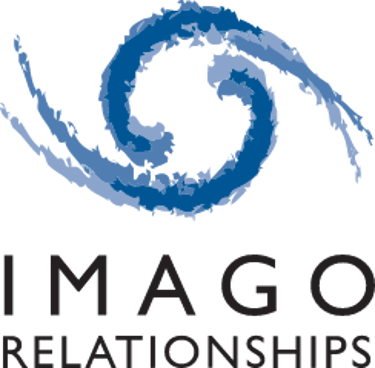TEMEL İMAGO TERAPİSİ EĞİTİMİ
Imago Klinik Eğitim Programı, sertifikalı bir Imago İlişki Terapisti™ olmanız için sizi hazırlar ve tüm terapistlere İlişkisel Paradigma içinde klinik becerilerini derinleştirme konusunda destek sağlar. (Belirli koşullar altında farklı disiplinlerden de katılımcı kabul edilmektedir. Eğitmeninizle temasa geçmeniz gereklidir.)
Klinik eğitim programı, her biri 32 ders saatinden oluşan üç modülden oluşur.
Eğitimler, katılımcıların öğrendiklerini danışanlarıyla uygulayabilmeleri ve uygulama seanslarının kayıtlarını hazırlayabilmeleri için aralarında birkaç ay olacak şekilde planlanır.
Ders yapısı ve saatlerin nasıl işlendiği, eğitmene, ülkeye ve sunum yöntemine (çevrimiçi veya yüz yüze) göre bazı farklılıklar gösterebilir.
EĞİTİM HEDEFLERİ
Bu eğitim, katılımcılara aşağıdaki becerileri kazandırmayı amaçlamaktadır:
Yakın ilişkilerde güvenlik, bağlanma ve dönüşüm'e yer açan Imago diyalog becerileri ve süreçlerinin öğrenilmesi
Çekim, çatışma ve ilişki dinamiklerindeki değişimi anlamak için temel oluşturan dört farklı yolculuğun kavranması
Pratik klinik becerilerin geliştirilmesi
Imago'nun güvenli süpervizyon süreci aracılığıyla klinik yetkinlik ve güvenin artırılması
Kendi aile ve romantik ilişki dinamiklerinin keşfedilmesi
Eğitim Sonunda Katılımcılar Şunları Yapabilecektir:
Bir ilişkinin dört evresini tanımlayabilecek
Gelişimsel evrelerin, karşılanmamış ihtiyaçların ve karakter uyumlarının ilişkiler üzerindeki etkisini açıklayabilecek
"Imago eşleşmesi"nin çekim, partner seçimi ve çatışmadaki rolünü tartışabilecek
İmago diyaloğunun tüm aşamalarını etkili şekilde yönlendirebilecek
Çiftlerin tepkisellikleriyle çalışmak için gerekli beceri ve süreçleri gösterebilecek
Çatışma ve bağlanmadaki nörobiolojik süreçleri açıklayabilecek
Benliğin kayıp, reddedilmiş ve gölgede kalmış parçalarının ilişkileri nasıl etkilediğini tartışabilecek
Çiftlerle çalışırken ortaya çıkan zorlu duyguları ve kendi tepkiselliklerini yönetme araçlarını kullanabilecek
Imago teorisi ve kavramlarını kendi ilişki yolculuğunda uygulayabilecek
KATILIM ve SERTİFİKASYON
KOŞULLARI
(1. Modüle bu koşulları tamamlamadan da katılımcı alınabilir ve duruma göre eğitime devamı mümkün olabilir, fakat IITI Klinik sertifikasyonu almak için tüm koşulları tamamlamak şarttır.)
Katılımcının, çiftlerle klinik bir ortamda çalışıyor olması ve ikamet ettiği bölge veya ülkenin yasaları uyarınca klinik çalışma yapmak için gerekli yeterliliklere ve yasal izne sahip olması gerekmektedir.
Sertifikasyon İçin
Ruh sağlığına dair (psikoloji, psikolojik danışmanlık, psikiyatri) geçerli bir lisans derecesini takiben 5 yıl klinik deneyim, VEYA
Yüksek lisans derecesini takiben 3 yıl klinik deneyim.
Yapılandırılmış bir okuldan psikoterapi eğitimi almış ve o terapi yaklaşımı çerçevesinde çalışıyor olmak.
*******
Toplam 96 saat süren Temel Klinik Eğitimin tüm 3 modülünü tamamlamak.
En az 1 yıllık bir süpervizyon sürecine katılmak.
Eğitimin 2. ve 3. modülleri için Imago deneyimlerinizi içeren yazılı raporlar sunmak.
Değerlendirme için belirli kriterleri karşılayan bir terapi seansı videosu sunmak.
Imago "Özlemini Duyduğunuz Aşkı Bulmak" ("Getting the Love You Want") veya "Aşkı Sürdürmek" ("Keeping the Love You Find") atölyesine katılmak ve başka bir Imago atölyesinde asistanlık yapmak.
Sahadaki çalışmalarınızı bilen iki meslektaşınızdan alınacak referans mektubu.
IRW ve IITI ile Sertifikasyon Anlaşmasını İmzalamak
Önemli Not: Eşler/partnerler ve psikoterapist olmayan ancak Imago sertifikasına ilgi duyan profesyoneller için "Imago Kolaylaştırıcı" (Facilitator) ve "Imago Uygulayıcı" (Practitioner) seçenekleri mevcut olabilir.
Lütfen bu konuda eğitmene danışınız.
